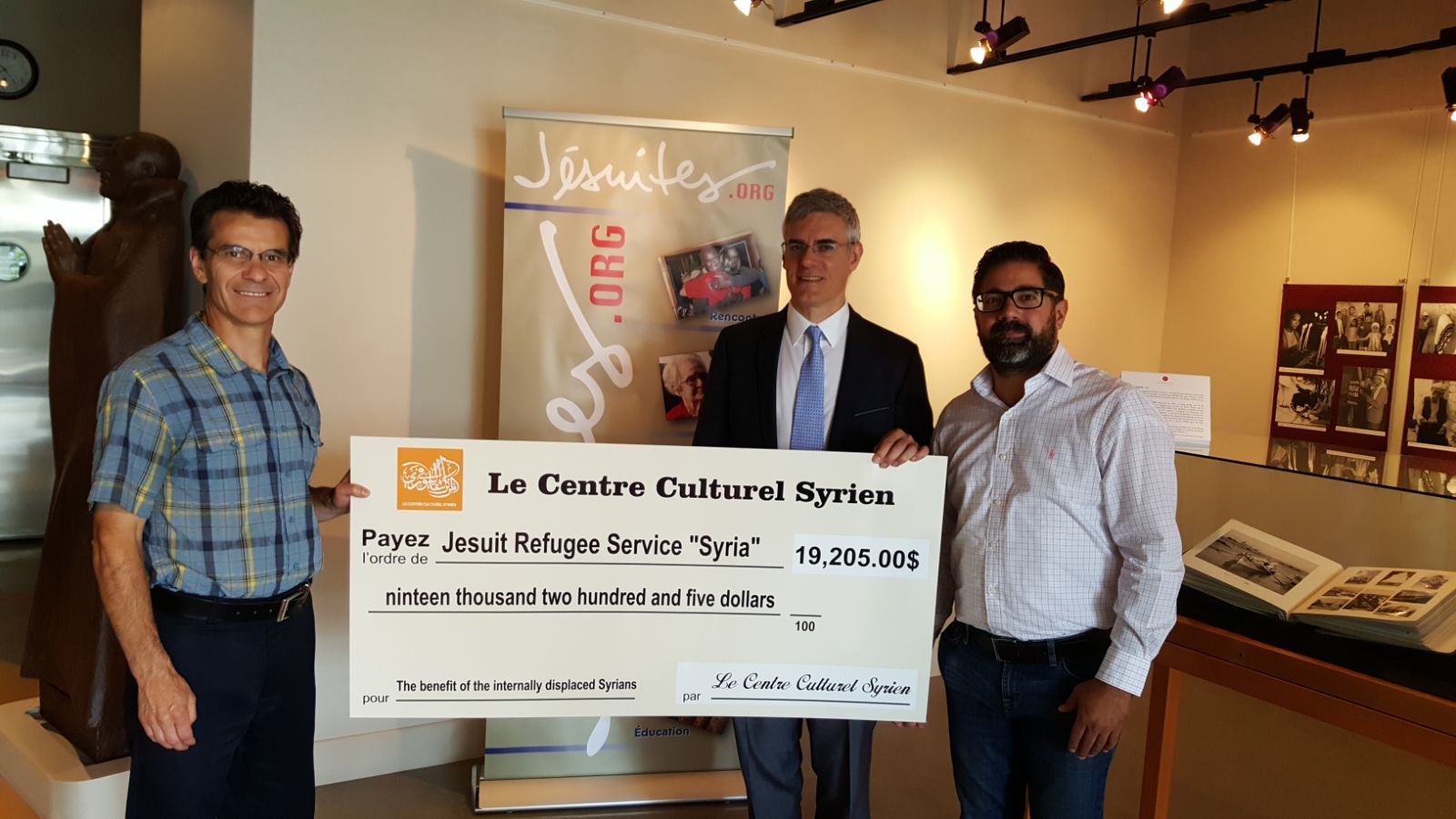Report on the funds donated by Le centre Culturel Syrien in Montreal – August 22nd, 2017
JRS Presence in the Region
JRS began its work in the Middle East 2008 in response to Iraqi refugees fleeing the conflict in their country. Currently, JRS in the Middle East is serving refugees and internally displaced persons in Iraq, Jordan, Lebanon, Syria, and Turkey; offering a range of services, from child and adult education to accompaniment and psycho-social support, from emergency assistance to advocacy. JRS serves people in need without distinction; Iraqis, Sudanese, Somalis, Syrians and others from different cultures and religions throughout the region. JRS has gained the reputation of offering quality services and spreading a family spirit amongst the people served. The people attending the activities feel protected and welcomed.
Following the violent events in Syria from 2011 onwards, JRS has provided emergency relief to Syrians inside Syria. In 2017, the JRS team in Aleppo continues with its unstinted support to the affected people in the area, despite many obstacles.
In Aleppo, JRS serves approximately 9,760 daily cooked meals to Internally Displaced People and local population in need. This program provides beneficiaries with hot meals, five days per week through 12 distribution centres managed by local partners such as churches, mosques, and youth groups. Over the last year, JRS also provided food baskets to 10,779 households, hygiene kits to 6,592 households and other hygiene items to 14,200 people.
Aleppo 2017 ongoing clinical and medical support
The services provided include: referral cases, laboratory tests, general surgeries, hospital admissions, general health care, paediatric diseases, home-visits and provision of medicines. The clinic operates five days a week, from 9 AM to 5 PM. The project serves an average of 4,000 people/month with 49 people in staff.
Healthcare System:
The healthcare system is collapsing with the targeting of the healthcare facilities by shelling and bombarding. In 2016, there were reports of up to 101 attacks on hospitals and health care centres across Syria, with 14 health care workers killed and 40 injured. Since the beginning of the conflict 770 health workers have been killed. The majority of the hospitals in Syria are either partially operating or not operating at all (only 48% are fully functioning).
The targeting of the local pharmaceuticals manufacturing facilities has severely damaged the availability of medications, which led to an increase in the prices of medications. The shortages significantly affect people with chronic diseases. The vaccination rate has decreased from 90% before the crisis to around 65% currently. Fear of diseases outbreaks is a major concern.
After the long-lasted violence which claimed the lives of several healthcare workers across the divided city of Aleppo, many doctors are fleeing for their lives. WHO reported that, since the crisis began, 95 percent of the Aleppo medical doctors from both parts of the city have either fled, been killed or are detained. Over the period from January 2015 to June 2016, 523 health workers (doctors, nurses, midwives) left the services (staff decrease by 15%). According to the health cluster data, for every medical doctor killed or leaving the country, more than 40 Syrians are deprived of medical consultation per day.
JRS Response:
- By the end of the second quarter of the project, 10,633 individuals were registered and received health care services;
- An average of 1,434 individuals per month individuals are referred (to laboratory tests, radiography, hospital admissions, surgeries, childbirth external examinations, physiotherapy sessions and non-therapeutic items) to receive additional health care services.
- The targets of 4,000 individuals per month receiving medications for chronic diseases and non-chronic diseases was greatly surpassed.
- Considering the constraints, the priority was given to life-threatening surgical operations, especially heart operations which JRS helped covering 50% of the total operations cost in coordination with other agencies.
- After receiving financial approval of the project and the required funds, the scope of services was expanded effectively, especially in terms of surgical operations, where the service ratio increased by approximately 40% compared to the first month at the start of the project.
- Doctors and project team helped reduce the waiting period to get medical service where patients, especially the ones with severe medical cases can start examination and treatment during the same day, This has also allowed for the provision of more chronic patients and increased pharmacological services provided by the Medical Center Pharmacy, particularly for children with neurological diseases and cancer patients.
- The M&E of the project including asking beneficiaries about their satisfaction level for the medical service.
- From those who were served, 61.4% of the families reported that they had no other alternatives to cover their medical needs, and 36.7% said that their medical needs were only partially met through other means or services.
- When asked about their satisfaction of the services received from the JRS medical project, 50% of the respondent said it was excellent, 34.5% said it was very good, and 15.5% said it was fairly good.
- Responding to ‘How you describe the change in your health situation after you received the medical service?’: 64.3% responded their health improved; 31.3% responded that were stable, and only 4.2% considered their health condition has (regrettably) become worse.



(0)